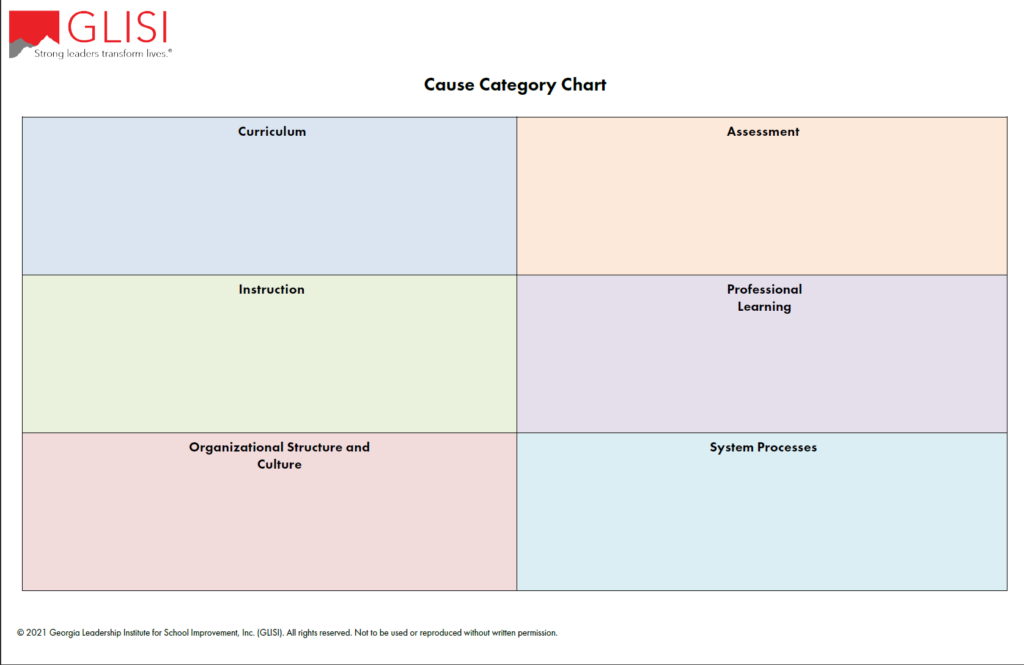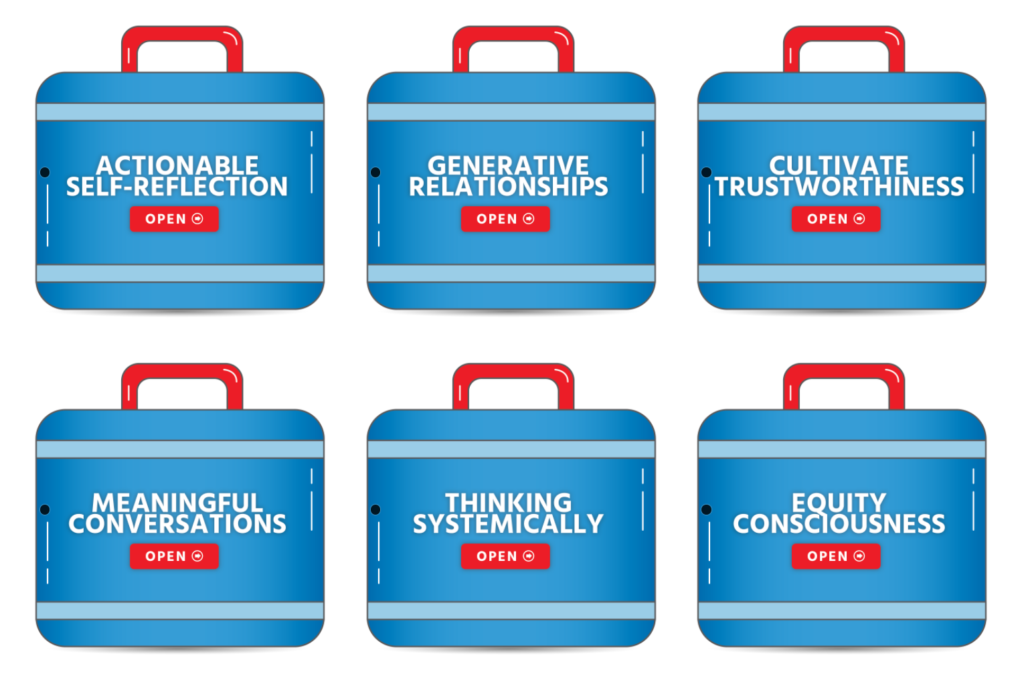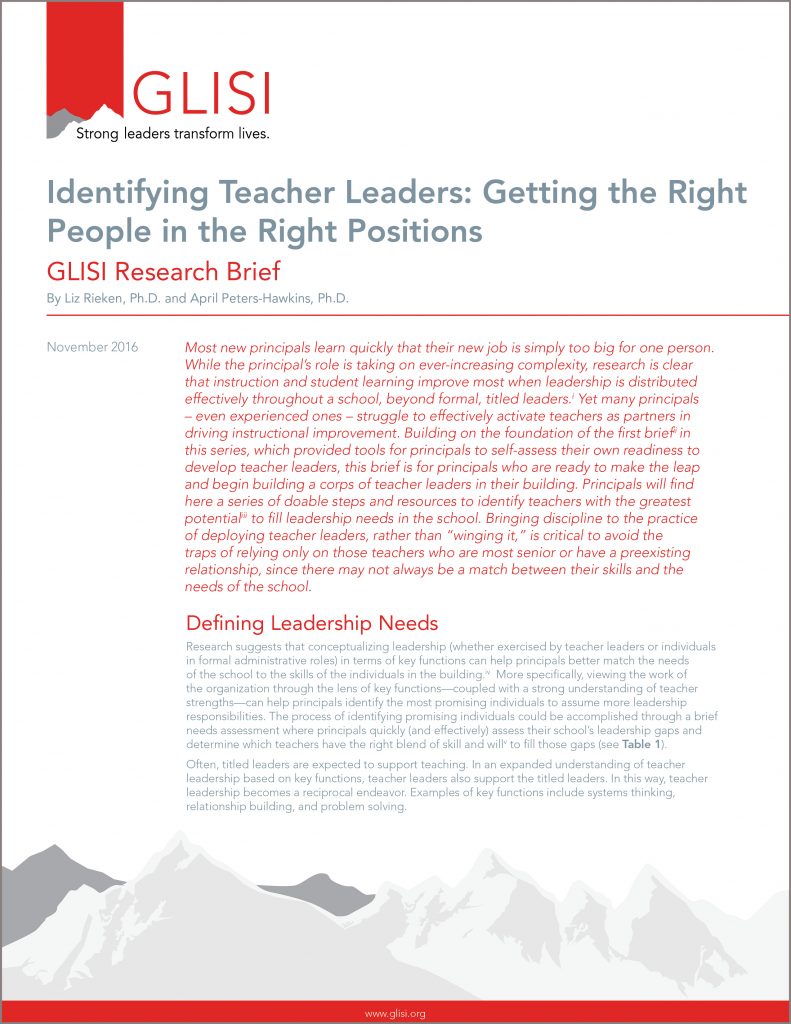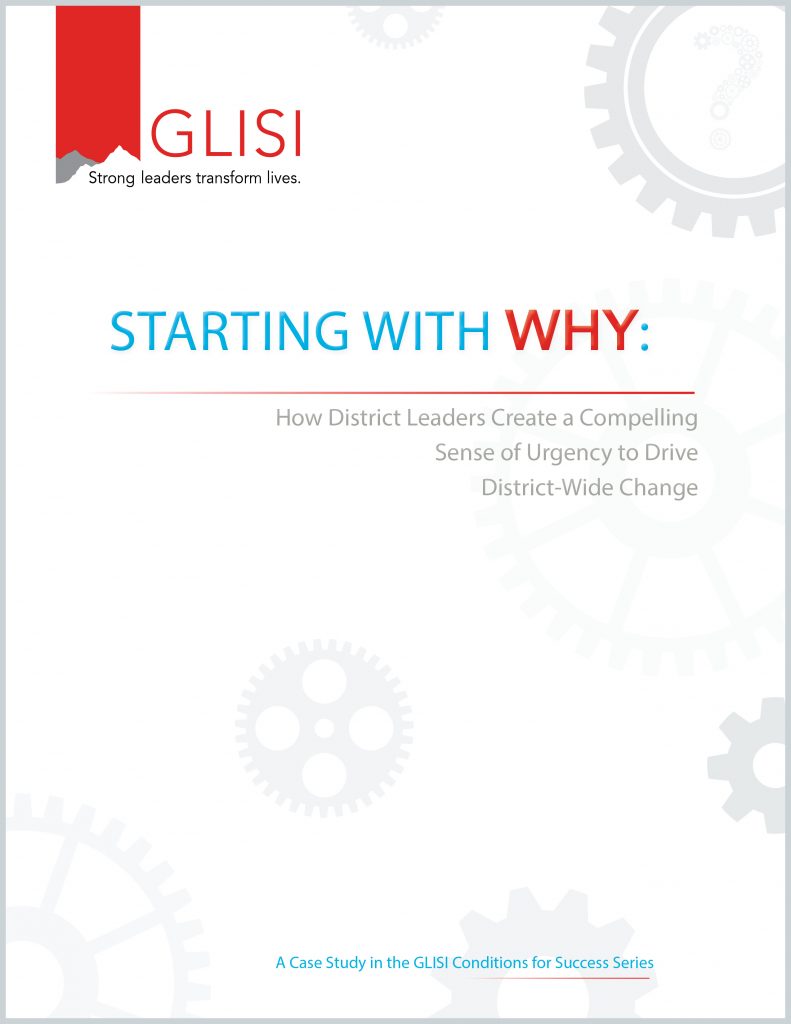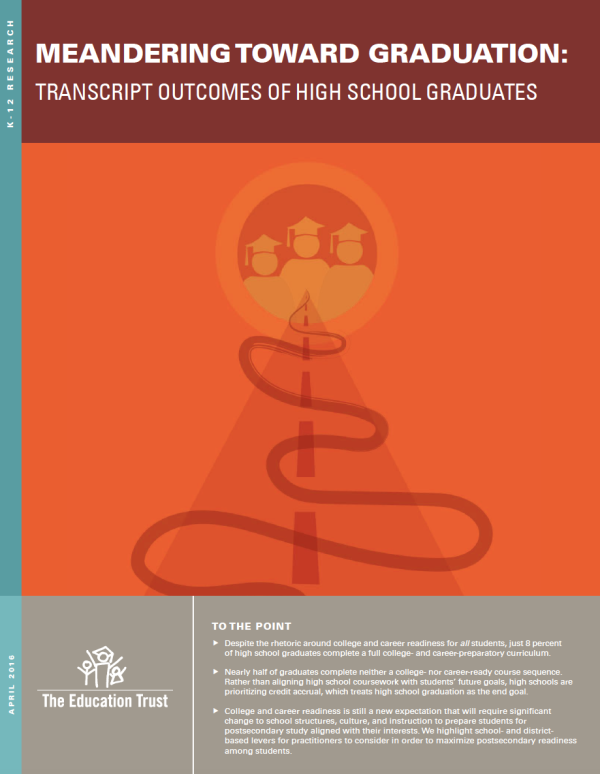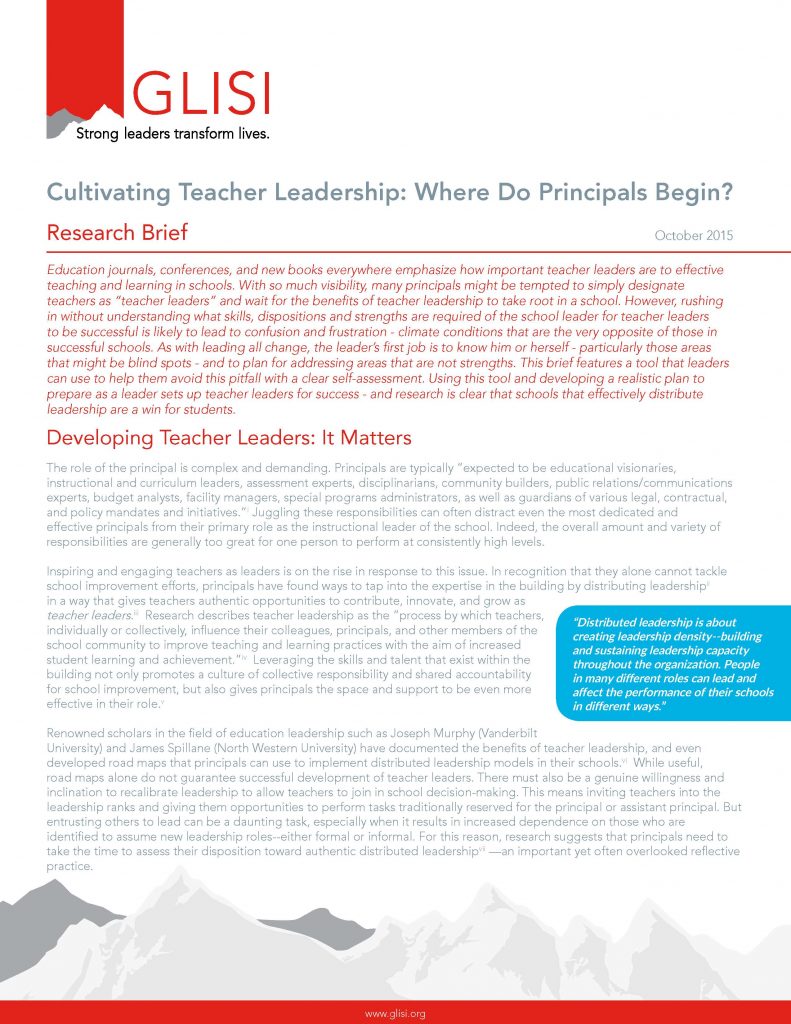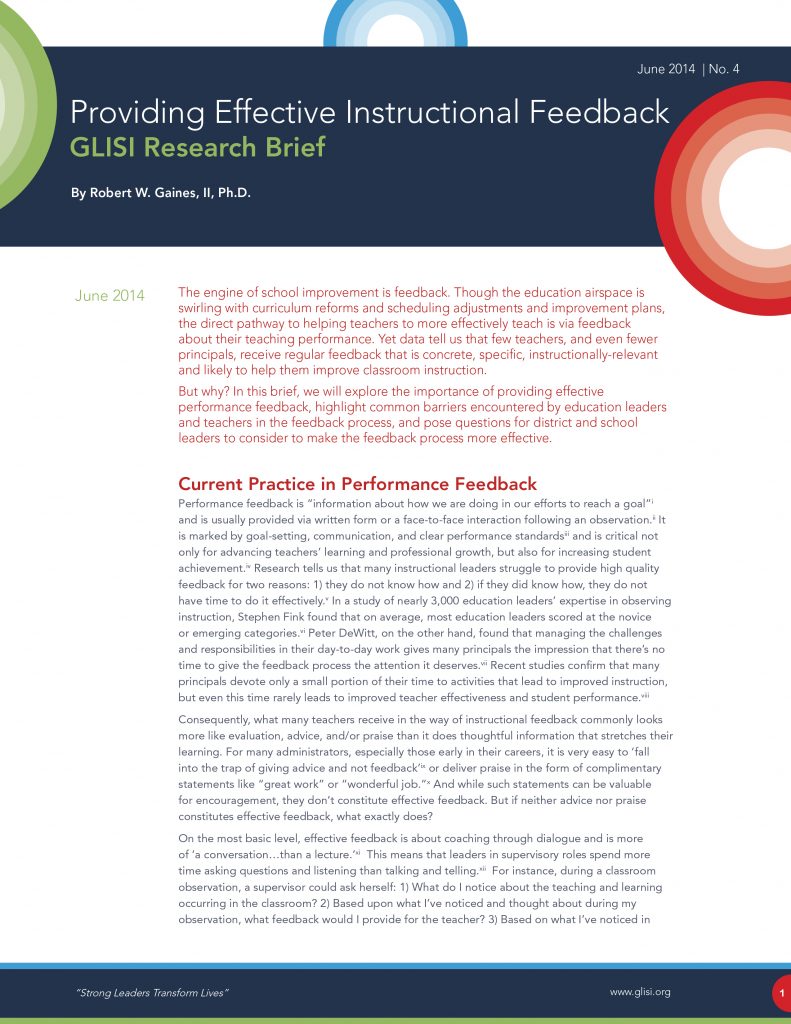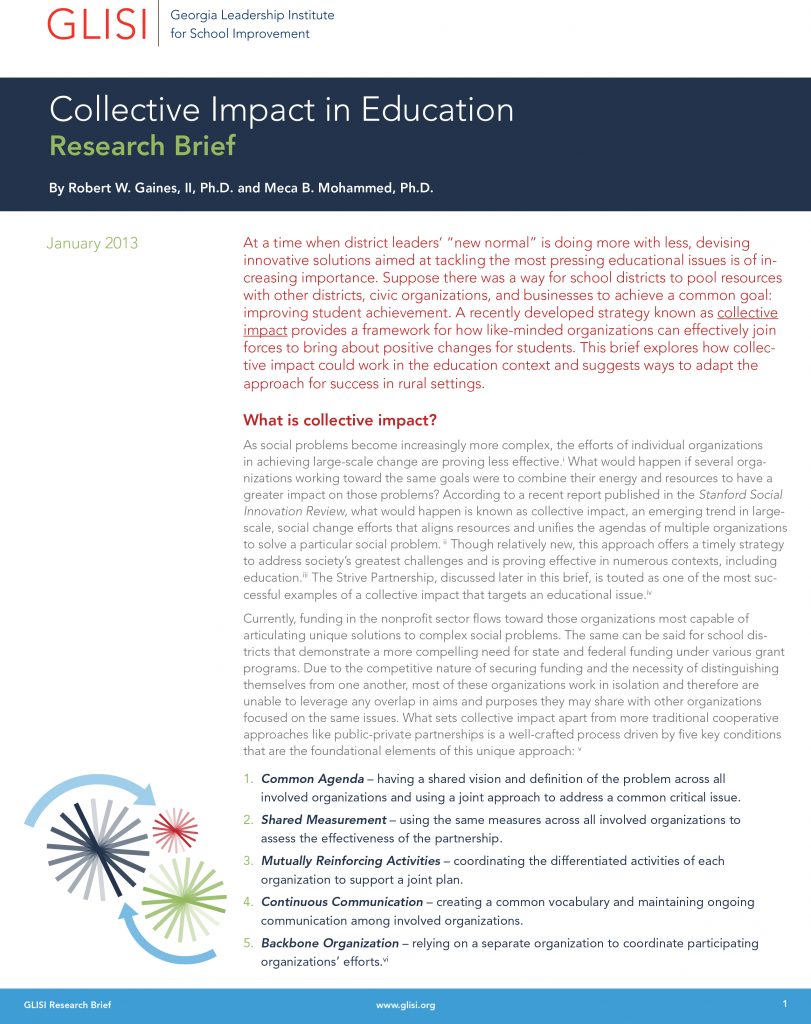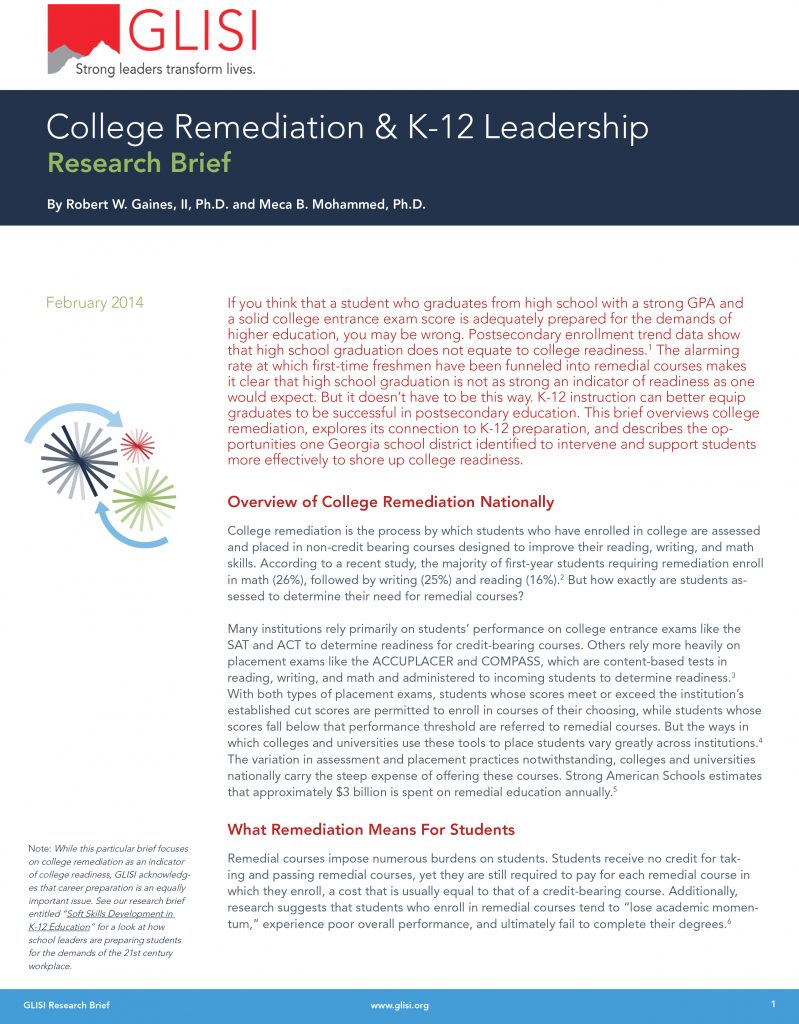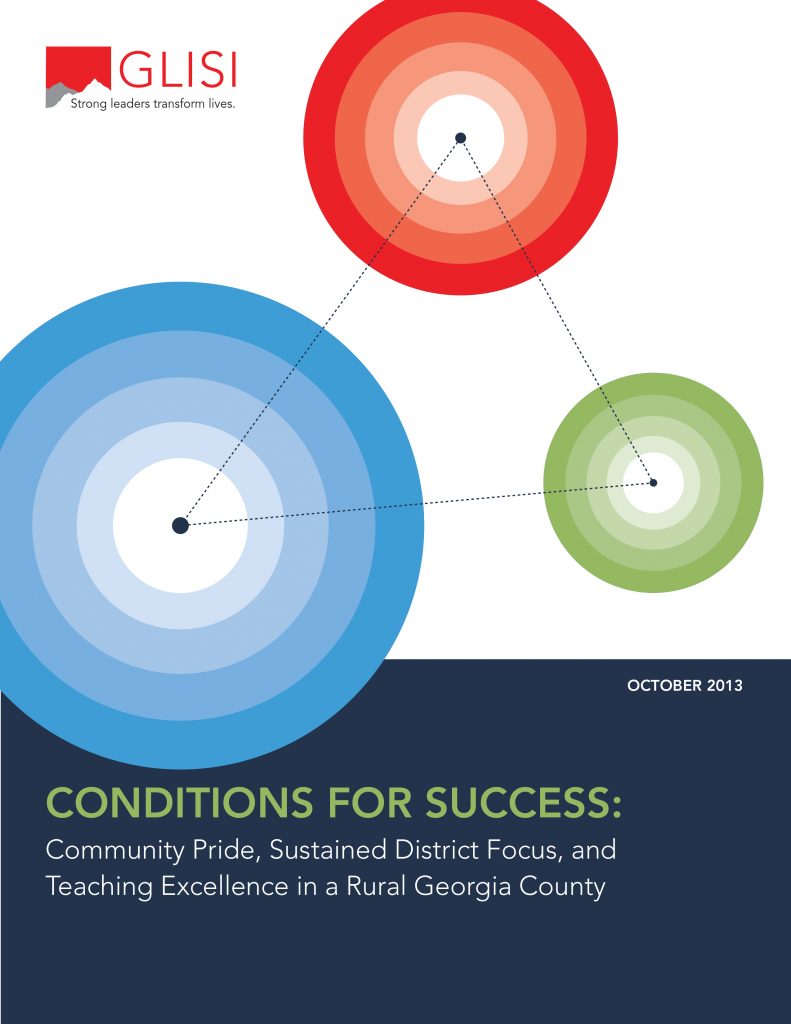GLISI curates cutting-edge research, reports, and in-house publications to support the development of leaders from the classroom to the school building to the central office.
Select the applicable leader key and leader type in the filter to find relevant resources for your needs.
Our accountability rests with our adult actions and practices that impact student outcomes. Using a Cause Category Chart and Cause Exploration Cards, this Cause Exploration Practice can help your team…
Read MoreSocial and emotional skills are widely acknowledged to have a critical role in student success and, increasingly, education leaders also recognize the importance of developing SEL among the adults in…
Read MoreMost new principals learn quickly that their new job is simply too big for one person. While the principal’s role is taking on ever-increasing complexity, research is clear that instruction…
Read MoreHow did leaders in a rural school district in middle Georgia consistently improve math outcomes for traditionally underperforming students? That is the driving question of GLISI’s third report in it’s Conditions for Success case study…
Read MoreWhat happens to students’ post-secondary dreams when schools aren’t equipping them with the foundational knowledge and skills needed for college and career success? Meandering Toward Graduation, a report from EdTrust explores that issue, highlighting the gulf…
Read MoreEducation journals, conferences, and new books everywhere emphasize how important teacher leaders are to effective teaching and learning in schools. With so much visibility, many principals might be tempted to simply…
Read MoreThe engine of school improvement is feedback. Though the education airspace is swirling with curriculum reforms and scheduling adjustments and improvement plans, the direct pathway to helping teachers to more effectively teach is via feedback about their teaching performance. Yet data tell us that few teachers, and even fewer principals, receive regular feedback that is concrete, specific, instructionally-relevant and likely to help them improve classroom instruction. But why? In this brief, we will explore the importance of providing effective performance feedback, highlight common barriers encountered by education leaders and teachers in the feedback process, and pose questions for district and school leaders to consider to make the feedback process more effective.
Read MoreHow can districts make their partnerships designed to improve student learning more effective? One new promising strategy is collective impact. Collective impact is a recently developed strategy that shows how like-minded organizations can join forces to bring about long-lasting positive change in their communities. Particularly, this brief examines how collective impact works in an educational context to improve student achievement and suggests ways to adapt the approach for success in rural settings.
Read MoreIf you think that a student who graduates from high school with a strong GPA and a solid college entrance exam score is adequately prepared for the demands of higher education, you may be wrong. Post-secondary enrollment trend data show that high school graduation does not equate to college readiness.This brief overviews college remediation, explores its connection to K-12 preparation, and describes the opportunities one Georgia school district identified to intervene and support students more effectively to shore up college readiness.
Read MoreWhat did school and community leaders do that led to rural school success in third-grade reading? Researchers at GLISI found three conditions in a case study with implications for rural student achievement. This is the second in GLISI’s Conditions for Success series.
Read More